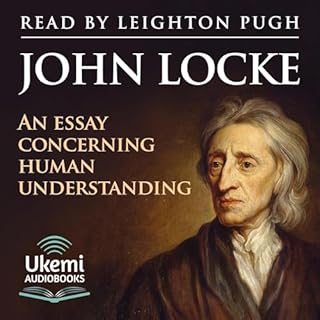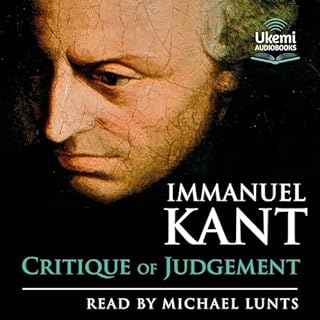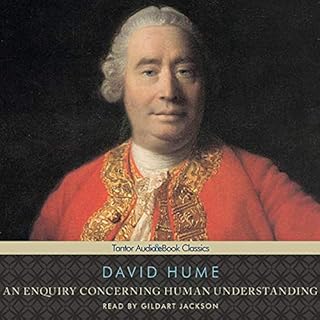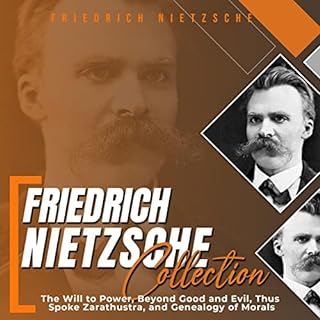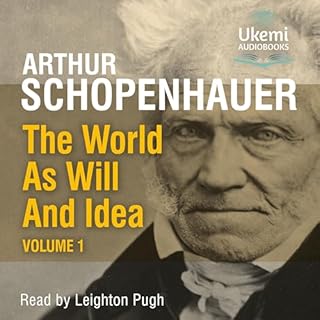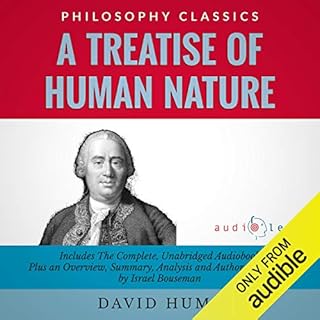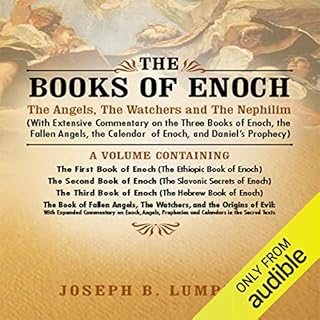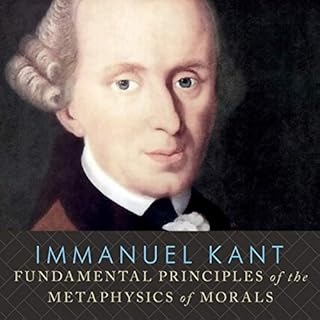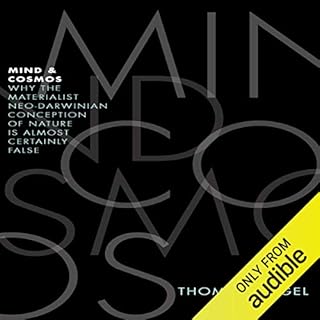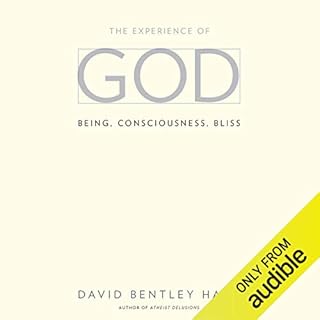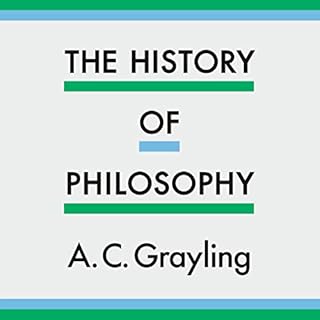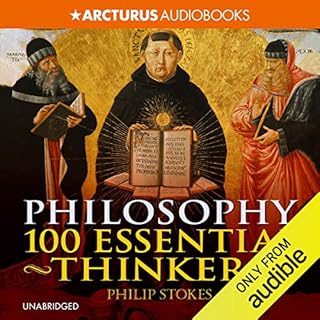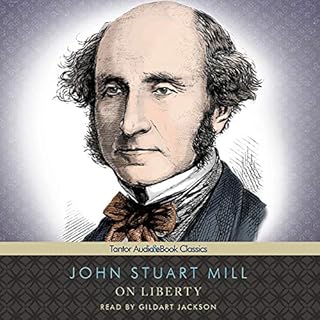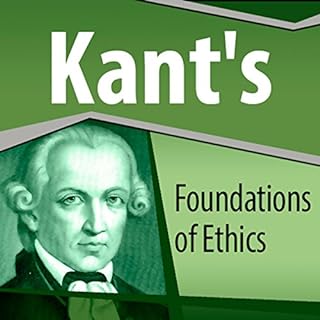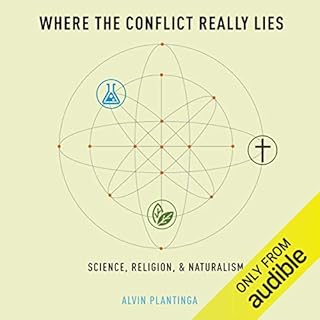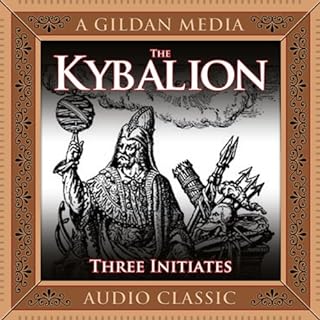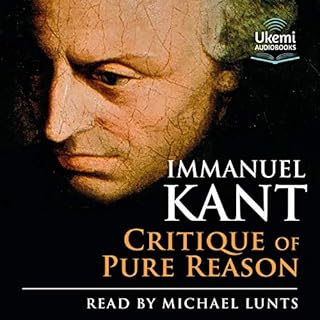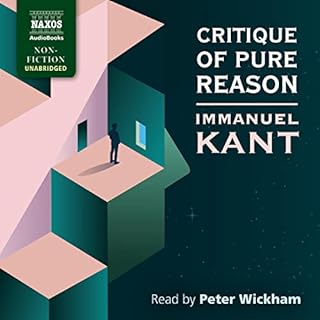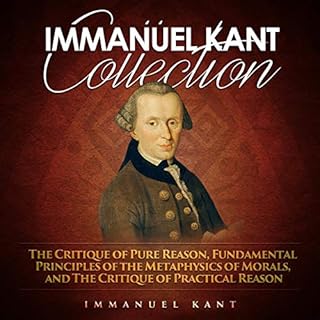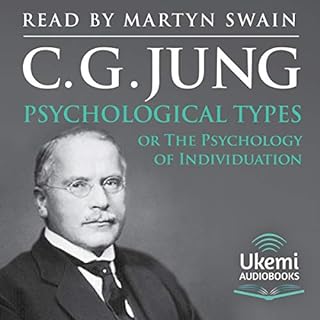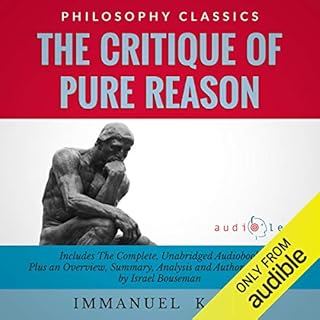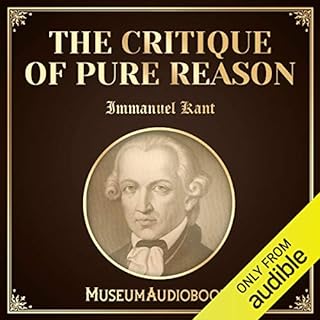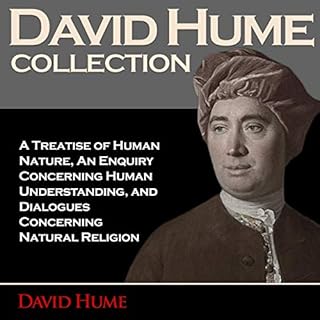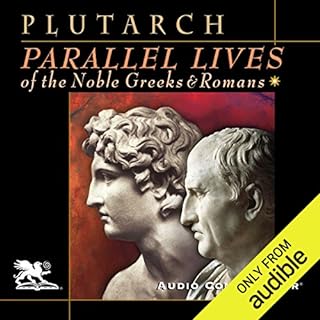
The Critique of Pure Reason
Failed to add items
Add to Cart failed.
Add to Wish List failed.
Remove from wishlist failed.
Adding to library failed
Follow podcast failed
Unfollow podcast failed
 Prime members: New to Audible?
Prime members: New to Audible?Get 2 free audiobooks during trial.
Buy for $29.95
No default payment method selected.
We are sorry. We are not allowed to sell this product with the selected payment method
-
Narrated by:
-
Martin Wilson
-
By:
-
Immanuel Kant
About this listen
Published in 1797, the Critique of Pure Reason is considered to be one of the foremost philosophical works ever written. In the Critique of Pure Reason, Immanuel Kant explores the foundation of human knowledge and its limits, as well as man's ability to engage in metaphysics.
The Critique builds on the works of famous philosophers such as John Locke and David Hume, but Kant takes their ideas further. Kant delves into new ideas concerning time and space and how human knowledge relates to cause and effect. Kant's ideas were unique for his time in that he believed that human knowledge did not conform to objects but that objects conformed to human knowledge. It was also Kant's view that humans were born with some prior knowledge that might also be termed intuition and that additional knowledge was gained through life experience.
Born in 1724, Immanuel Kant was a German philosopher who is considered by many to be an important contributor to modern philosophical thought. The basics of Kant's beliefs were that the human mind was responsible for creating the structure of one's experiences.
Public Domain (P)2017 A.R.N. PublicationsListeners also enjoyed...
-
Phenomenology of Spirit
- By: G. W. F. Hegel, A. V. Miller - translator, J. N. Findlay
- Narrated by: David DeVries
- Length: 29 hrs and 38 mins
- Unabridged
-
Overall4.5 out of 5 stars 149
-
Performance4.5 out of 5 stars 119
-
Story4.5 out of 5 stars 118
Perhaps one of the most revolutionary works of philosophy ever presented, The Phenomenology of Spirit is Hegel's 1807 work that is in numerous ways extraordinary. A myriad of topics are discussed, and explained in such a harmoniously complex way that the method has been termed Hegelian dialectic. Ultimately, the work as a whole is a remarkable study of the mind's growth from its direct awareness to scientific philosophy, proving to be a difficult yet highly influential and enduring work.
-
5 out of 5 stars
-
My favorite audible book of the 700 I've rated
- By Gary on 01-02-16
By: G. W. F. Hegel, and others
-
An Essay Concerning Human Understanding
- By: John Locke
- Narrated by: Leighton Pugh
- Length: 30 hrs and 20 mins
- Unabridged
-
Overall4.5 out of 5 stars 78
-
Performance4.5 out of 5 stars 65
-
Story4.5 out of 5 stars 65
John Locke and his works - particularly An Essay Concerning Human Understanding - are regularly and rightly presented as foundations for the Age of Enlightenment. His primary epistemological message - that the mind at birth is a blank sheet waiting to be filled by the experiences of the senses - complemented his primary political message: that human beings are free and equal and have the right to envision, create and direct the governments that rule them and the societies within which they live.
-
5 out of 5 stars
-
Exhaustive Philosophic Treatise
- By No to Statism on 09-25-18
By: John Locke
-
Metaphysics
- By: Aristotle
- Narrated by: James Cameron Stewart
- Length: 14 hrs and 32 mins
- Unabridged
-
Overall4.5 out of 5 stars 124
-
Performance4.5 out of 5 stars 102
-
Story4.5 out of 5 stars 100
Aristotle's Metaphysics was the first major study of the subject of metaphysics - in other words, an inquiry into 'first philosophy', or 'wisdom'. It differs from Physics which is concerned with the natural world: things which are subject to the laws of nature, things that move and change, are measurable. In Metaphysics, the study falls on 'being qua being' - being insofar as it is being; the causes and principles of being, the causes and principles of substances.
-
5 out of 5 stars
-
More relevant and needed than ever before!!!
- By Dino Valente on 05-31-17
By: Aristotle
-
Beyond Good and Evil
- By: Friedrich Nietzsche
- Narrated by: Alex Jennings, Roy McMillan
- Length: 8 hrs and 24 mins
- Unabridged
-
Overall4.5 out of 5 stars 1,692
-
Performance4.5 out of 5 stars 1,414
-
Story4 out of 5 stars 1,392
Continuing where Thus Spoke Zarathustra left off, Nietzsche's controversial work Beyond Good and Evil is one of the most influential philosophical texts of the 19th century and one of the most controversial works of ideology ever written. Attacking the notion of morality as nothing more than institutionalised weakness, Nietzsche criticises past philosophers for their unquestioning acceptance of moral precepts. Nietzsche tried to formulate what he called "the philosophy of the future".
-
5 out of 5 stars
-
Great Book, great Audio Narration
- By Bob H on 01-07-11
-
Critique of Judgement
- By: Immanuel Kant
- Narrated by: Michael Lunts
- Length: 15 hrs and 10 mins
- Unabridged
-
Overall5 out of 5 stars 29
-
Performance5 out of 5 stars 29
-
Story5 out of 5 stars 27
Critique of Judgement was published in 1790 and is divided into two parts, the Critique of Aesthetic Judgement and the Critique of Teleological Judgement. Our ‘judgements of taste’, as Kant describes our aesthetic judgements, have both a personal and a universal function: personal, because we have a subjective aesthetic response to the ‘agreeable’, the ‘beautiful’, the ‘sublime’ and the ‘good’; but also there is a ‘universal’ aspect because our aesthetic response has a ’disinterested’ element. This brings under Kant’s spotlight, for example, the concept of beauty and the perception of beauty.
-
5 out of 5 stars
-
Great Philosophic Treatise
- By No to Statism on 09-30-18
By: Immanuel Kant
-
An Enquiry Concerning Human Understanding
- By: David Hume
- Narrated by: Gildart Jackson
- Length: 6 hrs and 6 mins
- Unabridged
-
Overall4.5 out of 5 stars 292
-
Performance4.5 out of 5 stars 239
-
Story4.5 out of 5 stars 240
Published in 1748, An Enquiry Concerning Human Understanding is Scottish empiricist philosopher David Hume's distillation of his mature philosophy. Addressing themes including the limits of human understanding, the compatibility of free will with determinism, weaknesses in the foundations of religion, and the appeal of skepticism, An Enquiry Concerning Human Understanding is Hume's attempt to revise and clarify the ideas of his earlier A Treatise of Human Nature.
-
3 out of 5 stars
-
A Great Work Deserves a Great Performance
- By Bob on 03-04-13
By: David Hume
-
Phenomenology of Spirit
- By: G. W. F. Hegel, A. V. Miller - translator, J. N. Findlay
- Narrated by: David DeVries
- Length: 29 hrs and 38 mins
- Unabridged
-
Overall4.5 out of 5 stars 149
-
Performance4.5 out of 5 stars 119
-
Story4.5 out of 5 stars 118
Perhaps one of the most revolutionary works of philosophy ever presented, The Phenomenology of Spirit is Hegel's 1807 work that is in numerous ways extraordinary. A myriad of topics are discussed, and explained in such a harmoniously complex way that the method has been termed Hegelian dialectic. Ultimately, the work as a whole is a remarkable study of the mind's growth from its direct awareness to scientific philosophy, proving to be a difficult yet highly influential and enduring work.
-
5 out of 5 stars
-
My favorite audible book of the 700 I've rated
- By Gary on 01-02-16
By: G. W. F. Hegel, and others
-
An Essay Concerning Human Understanding
- By: John Locke
- Narrated by: Leighton Pugh
- Length: 30 hrs and 20 mins
- Unabridged
-
Overall4.5 out of 5 stars 78
-
Performance4.5 out of 5 stars 65
-
Story4.5 out of 5 stars 65
John Locke and his works - particularly An Essay Concerning Human Understanding - are regularly and rightly presented as foundations for the Age of Enlightenment. His primary epistemological message - that the mind at birth is a blank sheet waiting to be filled by the experiences of the senses - complemented his primary political message: that human beings are free and equal and have the right to envision, create and direct the governments that rule them and the societies within which they live.
-
5 out of 5 stars
-
Exhaustive Philosophic Treatise
- By No to Statism on 09-25-18
By: John Locke
-
Metaphysics
- By: Aristotle
- Narrated by: James Cameron Stewart
- Length: 14 hrs and 32 mins
- Unabridged
-
Overall4.5 out of 5 stars 124
-
Performance4.5 out of 5 stars 102
-
Story4.5 out of 5 stars 100
Aristotle's Metaphysics was the first major study of the subject of metaphysics - in other words, an inquiry into 'first philosophy', or 'wisdom'. It differs from Physics which is concerned with the natural world: things which are subject to the laws of nature, things that move and change, are measurable. In Metaphysics, the study falls on 'being qua being' - being insofar as it is being; the causes and principles of being, the causes and principles of substances.
-
5 out of 5 stars
-
More relevant and needed than ever before!!!
- By Dino Valente on 05-31-17
By: Aristotle
-
Beyond Good and Evil
- By: Friedrich Nietzsche
- Narrated by: Alex Jennings, Roy McMillan
- Length: 8 hrs and 24 mins
- Unabridged
-
Overall4.5 out of 5 stars 1,692
-
Performance4.5 out of 5 stars 1,414
-
Story4 out of 5 stars 1,392
Continuing where Thus Spoke Zarathustra left off, Nietzsche's controversial work Beyond Good and Evil is one of the most influential philosophical texts of the 19th century and one of the most controversial works of ideology ever written. Attacking the notion of morality as nothing more than institutionalised weakness, Nietzsche criticises past philosophers for their unquestioning acceptance of moral precepts. Nietzsche tried to formulate what he called "the philosophy of the future".
-
5 out of 5 stars
-
Great Book, great Audio Narration
- By Bob H on 01-07-11
-
Critique of Judgement
- By: Immanuel Kant
- Narrated by: Michael Lunts
- Length: 15 hrs and 10 mins
- Unabridged
-
Overall5 out of 5 stars 29
-
Performance5 out of 5 stars 29
-
Story5 out of 5 stars 27
Critique of Judgement was published in 1790 and is divided into two parts, the Critique of Aesthetic Judgement and the Critique of Teleological Judgement. Our ‘judgements of taste’, as Kant describes our aesthetic judgements, have both a personal and a universal function: personal, because we have a subjective aesthetic response to the ‘agreeable’, the ‘beautiful’, the ‘sublime’ and the ‘good’; but also there is a ‘universal’ aspect because our aesthetic response has a ’disinterested’ element. This brings under Kant’s spotlight, for example, the concept of beauty and the perception of beauty.
-
5 out of 5 stars
-
Great Philosophic Treatise
- By No to Statism on 09-30-18
By: Immanuel Kant
-
An Enquiry Concerning Human Understanding
- By: David Hume
- Narrated by: Gildart Jackson
- Length: 6 hrs and 6 mins
- Unabridged
-
Overall4.5 out of 5 stars 292
-
Performance4.5 out of 5 stars 239
-
Story4.5 out of 5 stars 240
Published in 1748, An Enquiry Concerning Human Understanding is Scottish empiricist philosopher David Hume's distillation of his mature philosophy. Addressing themes including the limits of human understanding, the compatibility of free will with determinism, weaknesses in the foundations of religion, and the appeal of skepticism, An Enquiry Concerning Human Understanding is Hume's attempt to revise and clarify the ideas of his earlier A Treatise of Human Nature.
-
3 out of 5 stars
-
A Great Work Deserves a Great Performance
- By Bob on 03-04-13
By: David Hume
-
Friedrich Nietzsche Collection
- The Will to Power, Beyond Good and Evil, Thus Spoke Zarathustra, and Genealogy of Morals
- By: Friedrich Nietzsche
- Narrated by: Gregory T. Luzitano
- Length: 40 hrs and 6 mins
- Unabridged
-
Overall4.5 out of 5 stars 36
-
Performance4.5 out of 5 stars 32
-
Story4.5 out of 5 stars 32
Artfully compiling a selection of Nietzsche’s timeless philosophy and intellectual musings, this book seeks to dispel the mystery and unravel the profound ideas behind this 19th-century intellectual giant. Exploring the driving forces behind Nietzsche’s philosophy, the Friedrich Nietzsche Collection draws on four of his most influential works, painting a rich and compelling picture of his immense legacy. This collection breaks down Nietzsche’s most impactful reflections, ranging from poignant questions about the nature of morality to a passionate call for self-discovery.
-
4 out of 5 stars
-
Translate the quotes!!!
- By Helene54 on 03-21-23
-
Prolegomena to Any Future Metaphysics that Will Be Able to Present Itself as a Science
- By: Immanuel Kant
- Narrated by: Michael Lunts
- Length: 5 hrs and 45 mins
- Unabridged
-
Overall4.5 out of 5 stars 23
-
Performance5 out of 5 stars 21
-
Story5 out of 5 stars 20
Kant's Prolegomena, although a small book, is without doubt the most important of his writings, writes the translator, Paul Carus. Prolegomena means, literally, prefatory or introductory remarks, and it furnishes us with a key to his main work, The Critique of Pure Reason; in fact, it is an extract containing all the salient ideas of Kant's system. It approaches the subject in the simplest and most direct way and is therefore best adapted as an introduction into his philosophy.
-
5 out of 5 stars
-
A classic worth reading
- By Anonymous User on 04-17-23
By: Immanuel Kant
-
Groundwork of the Metaphysics of Morals
- By: Immanuel Kant
- Narrated by: James Hugg
- Length: 3 hrs and 38 mins
- Unabridged
-
Overall4 out of 5 stars 16
-
Performance4.5 out of 5 stars 13
-
Story4 out of 5 stars 12
Groundwork of the Metaphysics of Morals (1785) is the first of Immanuel Kant's mature works on moral philosophy and remains one of the most important in the field. Kant examines the core concepts and principles of moral theory, showing that they are normative for rational agents. He aspires to lay bare the fundamental principle of morality and prove that it applies to us. Kant offers the argument that the rightness of an action is determined by the character of the principle that a person chooses to act upon.
-
2 out of 5 stars
-
Fine reading but quality of recording …meh
- By Jacob Whalen on 12-17-24
By: Immanuel Kant
-
Critique of Practical Reason
- By: Immanuel Kant, Thomas Kingsmill Abbott - translator
- Narrated by: Michael Lunts
- Length: 7 hrs and 6 mins
- Unabridged
-
Overall5 out of 5 stars 21
-
Performance5 out of 5 stars 20
-
Story5 out of 5 stars 20
The Critique of Practical Reason was published in 1788, seven years after Immanuel Kant's major work, Critique of Pure Reason. In it, Kant sets out his moral philosophy - and it proved a seminal text in the history of the subject. He argues that the summum bonum (the highest good) of life is that rather than just pursuing happiness, people should inhabit a moral dimension that enables them to deserve the happiness that God can give. Though much shorter than Critique of Pure Reason, this is the sourcebook for Kant’s ethical doctrines.
-
5 out of 5 stars
-
Worldly wisdom by sacred philosophy
- By jeon dong on 07-14-20
By: Immanuel Kant, and others
-
The World as Will And Idea, Volume 1
- By: Arthur Schopenhauer
- Narrated by: Leighton Pugh
- Length: 20 hrs and 26 mins
- Unabridged
-
Overall4.5 out of 5 stars 191
-
Performance5 out of 5 stars 159
-
Story4.5 out of 5 stars 158
Schopenhauer was just 30 when his magnum opus, Die Welt als Wille und Vorstellung, a work of considerable learning and innovation of thought, first appeared in 1818.
Much to his chagrin and puzzlement (so convinced was he of its merits), it didn't have an immediate effect on European philosophy, views and culture. It was only decades later that it was recognised as one of the major intellectual landmarks of the 19th century.
-
5 out of 5 stars
-
Easy to follow, better than today's fluff
- By Gary on 04-04-17
-
A Treatise of Human Nature
- By: David Hume, Israel Bouseman
- Narrated by: Philippe Duquenoy
- Length: 23 hrs and 45 mins
- Unabridged
-
Overall4.5 out of 5 stars 85
-
Performance4.5 out of 5 stars 72
-
Story4.5 out of 5 stars 72
A Treatise of Human Nature is the first work ever published by David Hume, a man who revolutionized our understanding of philosophy. Hume was an advocate of the skeptical school of philosophy and a key figure in the Scottish Enlightenment. He looks at the nature of human experience and cognition, showing that philosophy and reason can only be reflections of our nature.
-
5 out of 5 stars
-
What Formed The Foundation of Modern Philosophy!
- By Philosopher King on 01-17-17
By: David Hume, and others
-
The Books of Enoch: The Angels, The Watchers and The Nephilim
- With Extensive Commentary
- By: Joseph Lumpkin
- Narrated by: Dennis Logan
- Length: 17 hrs and 31 mins
- Unabridged
-
Overall4 out of 5 stars 608
-
Performance4 out of 5 stars 512
-
Story4.5 out of 5 stars 501
The well-known and acclaimed work of Dr. Joseph Lumpkin has been enlarged to include new research on the Books of Enoch, Fallen Angels, the Watchers, and the Nephilim. After presenting extensive historical backgrounds and brilliant translations of The First, Second, and Third Books of Enoch, Lumpkin takes time to piece together a historical narrative of Fallen Angels, the Watcher, and the Nephilim, using his extensive knowledge of ancient texts.
-
2 out of 5 stars
-
Lose the echo effect
- By Mark Medbery on 10-29-17
By: Joseph Lumpkin
-
The Art of War
- By: Sun Tzu
- Narrated by: Mel Foster
- Length: 1 hr and 23 mins
- Unabridged
-
Overall4.5 out of 5 stars 970
-
Performance4.5 out of 5 stars 756
-
Story4.5 out of 5 stars 752
The Art of War dates back to the fifth century BC, and is an ancient Chinese military handbook. Attributed to the intelligent military strategist Sun Tzu, the title of the work is Master Sun's Rules of Warfare when literally translated from Chinese. The book contains 13 chapters, each of which are dedicated to a single aspect of warfare strategy. Emperor Shenzong of Song deemed it the most important of China's Seven Military Classics in 1080 and it is still one of the most influential strategy texts in East Asia.
-
4 out of 5 stars
-
Straight forward translation
- By Ehren on 05-07-19
By: Sun Tzu
-
Fundamental Principles of the Metaphysics of Morals
- By: Immanuel Kant, Thomas Kingsmill Abbott - translator
- Narrated by: John Lee
- Length: 3 hrs and 20 mins
- Unabridged
-
Overall4.5 out of 5 stars 217
-
Performance4.5 out of 5 stars 187
-
Story4.5 out of 5 stars 184
Immanuel Kant's Fundamental Principles of the Metaphysics of Morals, first published in 1785, lays out Kant's essential philosophy and defines the concepts and arguments that would shape his later work. Central to Kant's doctrine is the categorical imperative, which he defines as a mandate that human actions should always conform to a universal, unchanging standard of rational morality.
-
4 out of 5 stars
-
Categorical Imperatives for Everyone
- By Darwin8u on 04-04-17
By: Immanuel Kant, and others
-
Being and Time
- By: Martin Heidegger
- Narrated by: Martyn Swain, Taylor Carman
- Length: 23 hrs and 18 mins
- Unabridged
-
Overall4.5 out of 5 stars 110
-
Performance5 out of 5 stars 93
-
Story4.5 out of 5 stars 93
Being and Time was published in 1927 during the Weimar period in Germany, a time of political, social and economic turmoil. Heidegger himself did not escape the pressures and his nationalism, and undeniable anti-Semitism in the following decades cast a shadow over the man, but not the work. Being and Time is not coloured by expressions of his later views (unlike other writings) and remains an outstanding document.
-
4 out of 5 stars
-
Surprised it works as audio
- By Anonymous on 02-02-20
By: Martin Heidegger
-
Ethics
- By: Benedict de Spinoza
- Narrated by: Antony Ferguson
- Length: 9 hrs and 6 mins
- Unabridged
-
Overall4.5 out of 5 stars 251
-
Performance4.5 out of 5 stars 201
-
Story4.5 out of 5 stars 201
Benedict de Spinoza's Ethics, first published in 1677, constitutes a major systematic critique of the traditional and religious foundations of philosophical thought. In it, Spinoza follows a logical step-by-step format consisting of definitions, axioms, propositions, proofs, and corollaries to create a comprehensive inquiry into the truth about God, nature, and humans' place within the universe. From these broad metaphysical themes, Spinoza derives what he considered to be the highest principles of religion and society and lays out an ethical system in which reason is the supreme value.
-
5 out of 5 stars
-
Now I understand "the God of Spinoza"
- By Gary on 07-31-16
-
Emotional Intelligence and Agility
- Learn How to Be Smart About Your Feelings
- By: Moe Alodah
- Narrated by: Jordan Thomas
- Length: 1 hr and 13 mins
- Unabridged
-
Overall4 out of 5 stars 19
-
Performance3.5 out of 5 stars 18
-
Story4 out of 5 stars 18
Having a high score in your IQ is something you can be proud of, however, without a good level of emotional balance then you are only half-way in your life-satisfaction journey. As you will learn in this short book, emotional balance can be accomplished through emotional intelligence and emotional agility. Improving your emotions can help you to become a better communicator whether at the workplace, home or with your friends.
-
4 out of 5 stars
-
This was really a great book all together.
- By janet Szymanski on 09-09-19
By: Moe Alodah
Related to this topic
-
On the Fourfold Root of the Principle of Sufficient Reason
- By: Arthur Schopenhauer
- Narrated by: Leighton Pugh
- Length: 6 hrs and 45 mins
- Unabridged
-
Overall5 out of 5 stars 52
-
Performance5 out of 5 stars 41
-
Story5 out of 5 stars 40
There is a cause, or a reason, behind everything that happens. This is the fundamental view behind the classical proposition the Principle of Sufficient Reason, which, in 1813, Schopenhauer chose as his subject for further examination in his doctoral dissertation On the Fourfold Root of the Principle of Sufficient Reason....
-
5 out of 5 stars
-
I’ve enjoyed this program
- By M.Biblioswine on 04-23-20
-
Aquinas
- An Audio Guide
- By: Edward Feser
- Narrated by: Adrian Mulraney
- Length: 7 hrs and 35 mins
- Unabridged
-
Overall4.5 out of 5 stars 151
-
Performance4.5 out of 5 stars 134
-
Story4.5 out of 5 stars 130
One of the most influential philosophers and theologians in the history of Western thought, St Thomas Aquinas established the foundations for much of modern philosophy of religion, and is famous for his arguments for the existence of God. In this cogent and multifaceted introduction to the great saint's work, Edward Feser argues that you cannot fully understand Aquinas' philosophy without his theology, and vice-versa. He covers Aquinas' thoughts on the soul, natural law, metaphysics, and more.
-
4 out of 5 stars
-
Excellent book marred by faulty pronunciation
- By Charles on 09-13-15
By: Edward Feser
-
Mind and Cosmos
- Why the Materialist Neo-Darwinian Conception of Nature Is Almost Certainly False
- By: Thomas Nagel
- Narrated by: Brian Troxell
- Length: 3 hrs and 45 mins
- Unabridged
-
Overall4 out of 5 stars 309
-
Performance4.5 out of 5 stars 261
-
Story4 out of 5 stars 259
The modern materialist approach to life has conspicuously failed to explain such central mind-related features of our world as consciousness, intentionality, meaning, and value. This failure to account for something so integral to nature as mind, argues philosopher Thomas Nagel, is a major problem, threatening to unravel the entire naturalistic world picture, extending to biology, evolutionary theory, and cosmology. Since minds are features of biological systems that have developed through evolution, the standard materialist version of evolutionary biology is fundamentally incomplete.
-
5 out of 5 stars
-
Intellectual honesty at its finest
- By Alice Walker on 02-15-18
By: Thomas Nagel
-
The Experience of God
- Being, Consciousness, Bliss
- By: David Bentley Hart
- Narrated by: Tom Pile
- Length: 12 hrs and 13 mins
- Unabridged
-
Overall4.5 out of 5 stars 322
-
Performance4.5 out of 5 stars 280
-
Story4.5 out of 5 stars 274
Despite the recent ferocious public debate about belief, the concept most central to the discussion "God" frequently remains vaguely and obscurely described. Are those engaged in these arguments even talking about the same thing? In a wide-ranging response to this confusion, esteemed scholar David Bentley Hart pursues a clarification of how the word "God” functions in the world’s great theistic faiths.
-
5 out of 5 stars
-
The clearest thinking I have heard in ages.
- By Carlos Miranda on 06-17-15
-
The Problems of Philosophy
- By: Bertrand Russell
- Narrated by: James Langton
- Length: 4 hrs and 31 mins
- Unabridged
-
Overall4.5 out of 5 stars 399
-
Performance4.5 out of 5 stars 341
-
Story4.5 out of 5 stars 328
The Problems of Philosophy discusses Bertrand Russell's views on philosophy and the problems that arise in the field. Russell's views focus on knowledge rather than the metaphysical realm of philosophy. The Problems with Philosophy revolves around the central question that Russell asks in his opening line of Chapter 1 - Is there any knowledge in the world which is so certain that no reasonable man could doubt it?
-
3 out of 5 stars
-
Either be smart or be not smart
- By Gary on 01-18-18
By: Bertrand Russell
-
The Function of Reason
- By: Alfred North Whitehead
- Narrated by: Ray Childs
- Length: 2 hrs and 34 mins
- Unabridged
-
Overall4.5 out of 5 stars 65
-
Performance4.5 out of 5 stars 53
-
Story4.5 out of 5 stars 49
Whitehead presented these three lectures at Princeton University in 1929. Although 85 years have passed, his central thesis and his analysis remain remarkably current. The scientific materialism that Whitehead opposed with such vigor continues to dominate in academic circles, and even now those who question that worldview are often accused of being antiscientific. This is especially true in discussions of the nature of the human mind and its relation to the body (particularly the brain).
-
5 out of 5 stars
-
Good
- By Benjamin on 06-17-22
-
On the Fourfold Root of the Principle of Sufficient Reason
- By: Arthur Schopenhauer
- Narrated by: Leighton Pugh
- Length: 6 hrs and 45 mins
- Unabridged
-
Overall5 out of 5 stars 52
-
Performance5 out of 5 stars 41
-
Story5 out of 5 stars 40
There is a cause, or a reason, behind everything that happens. This is the fundamental view behind the classical proposition the Principle of Sufficient Reason, which, in 1813, Schopenhauer chose as his subject for further examination in his doctoral dissertation On the Fourfold Root of the Principle of Sufficient Reason....
-
5 out of 5 stars
-
I’ve enjoyed this program
- By M.Biblioswine on 04-23-20
-
Aquinas
- An Audio Guide
- By: Edward Feser
- Narrated by: Adrian Mulraney
- Length: 7 hrs and 35 mins
- Unabridged
-
Overall4.5 out of 5 stars 151
-
Performance4.5 out of 5 stars 134
-
Story4.5 out of 5 stars 130
One of the most influential philosophers and theologians in the history of Western thought, St Thomas Aquinas established the foundations for much of modern philosophy of religion, and is famous for his arguments for the existence of God. In this cogent and multifaceted introduction to the great saint's work, Edward Feser argues that you cannot fully understand Aquinas' philosophy without his theology, and vice-versa. He covers Aquinas' thoughts on the soul, natural law, metaphysics, and more.
-
4 out of 5 stars
-
Excellent book marred by faulty pronunciation
- By Charles on 09-13-15
By: Edward Feser
-
Mind and Cosmos
- Why the Materialist Neo-Darwinian Conception of Nature Is Almost Certainly False
- By: Thomas Nagel
- Narrated by: Brian Troxell
- Length: 3 hrs and 45 mins
- Unabridged
-
Overall4 out of 5 stars 309
-
Performance4.5 out of 5 stars 261
-
Story4 out of 5 stars 259
The modern materialist approach to life has conspicuously failed to explain such central mind-related features of our world as consciousness, intentionality, meaning, and value. This failure to account for something so integral to nature as mind, argues philosopher Thomas Nagel, is a major problem, threatening to unravel the entire naturalistic world picture, extending to biology, evolutionary theory, and cosmology. Since minds are features of biological systems that have developed through evolution, the standard materialist version of evolutionary biology is fundamentally incomplete.
-
5 out of 5 stars
-
Intellectual honesty at its finest
- By Alice Walker on 02-15-18
By: Thomas Nagel
-
The Experience of God
- Being, Consciousness, Bliss
- By: David Bentley Hart
- Narrated by: Tom Pile
- Length: 12 hrs and 13 mins
- Unabridged
-
Overall4.5 out of 5 stars 322
-
Performance4.5 out of 5 stars 280
-
Story4.5 out of 5 stars 274
Despite the recent ferocious public debate about belief, the concept most central to the discussion "God" frequently remains vaguely and obscurely described. Are those engaged in these arguments even talking about the same thing? In a wide-ranging response to this confusion, esteemed scholar David Bentley Hart pursues a clarification of how the word "God” functions in the world’s great theistic faiths.
-
5 out of 5 stars
-
The clearest thinking I have heard in ages.
- By Carlos Miranda on 06-17-15
-
The Problems of Philosophy
- By: Bertrand Russell
- Narrated by: James Langton
- Length: 4 hrs and 31 mins
- Unabridged
-
Overall4.5 out of 5 stars 399
-
Performance4.5 out of 5 stars 341
-
Story4.5 out of 5 stars 328
The Problems of Philosophy discusses Bertrand Russell's views on philosophy and the problems that arise in the field. Russell's views focus on knowledge rather than the metaphysical realm of philosophy. The Problems with Philosophy revolves around the central question that Russell asks in his opening line of Chapter 1 - Is there any knowledge in the world which is so certain that no reasonable man could doubt it?
-
3 out of 5 stars
-
Either be smart or be not smart
- By Gary on 01-18-18
By: Bertrand Russell
-
The Function of Reason
- By: Alfred North Whitehead
- Narrated by: Ray Childs
- Length: 2 hrs and 34 mins
- Unabridged
-
Overall4.5 out of 5 stars 65
-
Performance4.5 out of 5 stars 53
-
Story4.5 out of 5 stars 49
Whitehead presented these three lectures at Princeton University in 1929. Although 85 years have passed, his central thesis and his analysis remain remarkably current. The scientific materialism that Whitehead opposed with such vigor continues to dominate in academic circles, and even now those who question that worldview are often accused of being antiscientific. This is especially true in discussions of the nature of the human mind and its relation to the body (particularly the brain).
-
5 out of 5 stars
-
Good
- By Benjamin on 06-17-22
-
On the Soul & Parva Naturalia
- By: Aristotle
- Narrated by: James Cameron Stewart
- Length: 8 hrs and 55 mins
- Unabridged
-
Overall4.5 out of 5 stars 29
-
Performance5 out of 5 stars 24
-
Story4.5 out of 5 stars 24
Two contrasting reflections by Aristotle which cover very particular ground. In 'On the Soul', Aristotle presents his view of the 'life essence' which, he argues, is possessed by living things whether plants, animals or humans. Not a 'soul' in the generally accepted Western use of the term, this 'soul', he says, is a life force that is indivisible from the organism that possesses it.
-
5 out of 5 stars
-
DeAnima. Aristotle on the soul.
- By Reader on 07-28-18
By: Aristotle
-
The History of Philosophy
- By: A. C. Grayling
- Narrated by: Neil Gardner
- Length: 28 hrs and 6 mins
- Unabridged
-
Overall4.5 out of 5 stars 124
-
Performance4.5 out of 5 stars 102
-
Story4.5 out of 5 stars 101
The story of philosophy is an epic tale, spanning civilizations and continents. It explores some of the most creative minds in history. But not since the long-popular classic by Bertrand Russell, A History of Western Philosophy, published in 1945, has there been a comprehensive and entertaining single-volume history of this great, intellectual, world-shaping journey.
-
5 out of 5 stars
-
A much needed update to Bertrand Russell's classic
- By Michael on 06-27-20
By: A. C. Grayling
-
Philosophy: 100 Essential Thinkers
- The Ideas That Have Shaped Our World
- By: Philip Stokes
- Narrated by: Steven Crossley
- Length: 8 hrs and 12 mins
- Unabridged
-
Overall4 out of 5 stars 114
-
Performance4.5 out of 5 stars 93
-
Story4 out of 5 stars 93
This engaging and accessible book invites the listener to explore the questions and arguments of philosophy through the work of 100 of the greatest thinkers within the Western intellectual tradition - covering philosophical, scientific, political, and religious thought over a period of 2500 years.
-
5 out of 5 stars
-
Unpretentious, honest, with a big picture
- By Mike S. on 05-29-17
By: Philip Stokes
-
Fundamental Principles of the Metaphysics of Morals
- By: Immanuel Kant, Thomas Kingsmill Abbott - translator
- Narrated by: John Lee
- Length: 3 hrs and 20 mins
- Unabridged
-
Overall4.5 out of 5 stars 217
-
Performance4.5 out of 5 stars 187
-
Story4.5 out of 5 stars 184
Immanuel Kant's Fundamental Principles of the Metaphysics of Morals, first published in 1785, lays out Kant's essential philosophy and defines the concepts and arguments that would shape his later work. Central to Kant's doctrine is the categorical imperative, which he defines as a mandate that human actions should always conform to a universal, unchanging standard of rational morality.
-
4 out of 5 stars
-
Categorical Imperatives for Everyone
- By Darwin8u on 04-04-17
By: Immanuel Kant, and others
-
A Short History of Ethics
- By: Alasdair MacIntyre
- Narrated by: Tim Dalgleish
- Length: 12 hrs and 20 mins
- Unabridged
-
Overall4.5 out of 5 stars 56
-
Performance3.5 out of 5 stars 53
-
Story4.5 out of 5 stars 51
A Short History of Ethics is a significant contribution written by one of the most important living philosophers. It remains an important work, ideal for all students interested in ethics and morality.
-
4 out of 5 stars
-
Great philosopher made ridiculous by accents
- By Olivia Walling on 10-04-17
-
On Liberty
- By: John Stuart Mill
- Narrated by: Gildart Jackson
- Length: 4 hrs and 58 mins
- Unabridged
-
Overall4.5 out of 5 stars 693
-
Performance4.5 out of 5 stars 593
-
Story4.5 out of 5 stars 588
First published in 1859, John Stuart Mill's On Liberty is an exhaustive exploration of social and civic liberty, its limits, and its consequences. Mill's work is a classic of political liberalism that contains a rational justification of the freedom of the individual in opposition to the claims of the state.
-
5 out of 5 stars
-
should be read by liberals and conservatives
- By Jim Hennessy on 09-13-18
By: John Stuart Mill
-
Kant's Foundations of Ethics
- By: Immanuel Kant
- Narrated by: Ray Childs
- Length: 5 hrs and 4 mins
- Unabridged
-
Overall4.5 out of 5 stars 32
-
Performance4.5 out of 5 stars 28
-
Story4.5 out of 5 stars 28
Kant published this work in 1795, during the aftermath of the American Revolution and the French Revolution. The high hopes of the European Enlightenment had been dampened by the Reign of Terror in which tens of thousands of people died, and the perpetual cycle of war and temporary armistice seemed to be inescapable. Kant's essay is best known as an early articulation of the idea of a league of nations that could bring an end to all hostilities. Today, the United Nations continues to pursue that dream, but lasting peace still seems to be wishful thinking.
-
5 out of 5 stars
-
The Best on The Foundation of the Metaphysics of Morals
- By JCW on 07-28-18
By: Immanuel Kant
-
Philosophy of Mind
- An Audio Guide
- By: Edward Feser
- Narrated by: Andrea Powell
- Length: 9 hrs and 23 mins
- Unabridged
-
Overall4.5 out of 5 stars 101
-
Performance4.5 out of 5 stars 87
-
Story4.5 out of 5 stars 86
In this lively and entertaining introduction to the philosophy of mind, Edward Feser explores the questions central to the discipline, and relates them not only to the human brain and its capacity for thought, but also to the increasing sophistication of artificial intelligence. This in-depth primer is an account of all the most important and significant attempts that have been made to answer the riddles of consciousness and thought.
-
1 out of 5 stars
-
Author is a Christian apologist, and it shows
- By David Penn on 08-30-15
By: Edward Feser
-
Theory and History
- An Interpretation of Social and Economic Evolution (LvMI)
- By: Ludwig von Mises, Murray Rothbard
- Narrated by: John Pruden
- Length: 10 hrs and 59 mins
- Unabridged
-
Overall4.5 out of 5 stars 57
-
Performance4.5 out of 5 stars 48
-
Story4.5 out of 5 stars 47
Like F.A. Hayek, Ludwig von Mises moved beyond economics in his later years to address questions regarding the foundation of all social science. But unlike Hayek's attempts, Mises' writings on these matters have received less attention than they deserve. Theory and History, writes Rothbard in his introduction, "remains by far the most neglected masterwork of Mises". Here Mises defends his all-important idea of methodological dualism: one approach to the hard sciences and another for the social sciences.
-
5 out of 5 stars
-
Without This Book, You Are Uneducated
- By Michael D. Rubin on 10-03-18
By: Ludwig von Mises, and others
-
Truth and Truthfulness
- By: Bernard Williams
- Narrated by: Ralph Cosham
- Length: 10 hrs and 42 mins
- Unabridged
-
Overall4.5 out of 5 stars 42
-
Performance4.5 out of 5 stars 34
-
Story4 out of 5 stars 33
What does it mean to be truthful? What role does truth play in our lives? What do we lose if we reject truthfulness? No philosopher is better suited to answer these questions than Bernard Williams. Writing with his characteristic combinationof passion and elegant simplicity, he explores the value of truth and finds it to be both less and more than we might imagine.
-
4 out of 5 stars
-
Content is excellent but the sound quality falters
- By Andy B. on 09-08-23
By: Bernard Williams
-
Where the Conflict Really Lies
- Science, Religion, & Naturalism
- By: Alvin Plantinga
- Narrated by: Michael Butler Murray
- Length: 12 hrs and 43 mins
- Unabridged
-
Overall4.5 out of 5 stars 258
-
Performance4.5 out of 5 stars 225
-
Story4.5 out of 5 stars 225
This audiobook is a long-awaited major statement by a pre-eminent analytic philosopher, Alvin Plantinga, on one of our biggest debates - the compatibility of science and religion. The last twenty years has seen a cottage industry of books on this divide, but with little consensus emerging. Plantinga, as a top philosopher but also a proponent of the rationality of religious belief, has a unique contribution to make. His theme in this short book is that the conflict between science and theistic religion is actually superficial, and that at a deeper level they are in concord.
-
2 out of 5 stars
-
The reader makes or breaks an audiobook.
- By Alec on 02-16-15
By: Alvin Plantinga
-
The Kybalion
- A Study of Hermetic Philosophy of Ancient Egypt and Greece
- By: The Three Intiates
- Narrated by: Mitch Horowitz
- Length: 4 hrs and 6 mins
- Unabridged
-
Overall4.5 out of 5 stars 3,459
-
Performance4.5 out of 5 stars 2,897
-
Story4.5 out of 5 stars 2,884
He was the father of the occult, the founder of astrology, the discoverer of alchemy. He was Hermes Trismegistus, and as the scribe of the gods of ancient Egypt, he possessed all divine knowledge... which he passed on to humanity, though only those who have been tutored in its wonders can fully understand it.In this extraordinary 1912 book, three secret initiates to his teachings - who remain anonymous to this day - share their insight with all who seek to understand the mysterious underpinnings of the universe and our relationship with it.
-
4 out of 5 stars
-
Big bites of ancient (now age?) wisdom to chew on
- By Diana on 07-24-14
People who viewed this also viewed...
-
Critique of Pure Reason
- By: Immanuel Kant
- Narrated by: Michael Lunts
- Length: 27 hrs and 38 mins
- Unabridged
-
Overall5 out of 5 stars 17
-
Performance5 out of 5 stars 16
-
Story4.5 out of 5 stars 15
Immanuel Kant’s Critique of Pure Reason can lay claim to being the most important single work of modern philosophy, a work whose methodology, if not necessarily always its conclusions, has had a profound influence on almost all subsequent philosophical discourse. In this work Kant addresses, in a groundbreaking elucidation of the nature of reason, the age-old question of philosophy: “How do we know what we know?” and the limits of what it is that we can know with certainty.
-
5 out of 5 stars
-
Another Great Recording by Ukemi
- By Jack on 03-27-21
By: Immanuel Kant
-
Critique of Pure Reason
- By: Immanuel Kant
- Narrated by: Peter Wickham
- Length: 25 hrs and 9 mins
- Unabridged
-
Overall4.5 out of 5 stars 2
-
Performance5 out of 5 stars 2
-
Story4 out of 5 stars 2
Immanuel Kant’s Critique of Pure Reason is a core text of modern philosophy. Presenting an examination of the nature of human reason, its central argument is that the way in which man perceives his environment is a direct consequence of the mind’s ability to act on this environment and convert it into something meaningful. The work brings together two opposing schools of philosophy—rationalism and empiricism—and proposes a third way, which came to be known as transcendental idealism. The work proved to be hugely influential, not least on Marx, Heidegger and Nietzsche.
-
4 out of 5 stars
-
The Narrator Deserves an Audie
- By Michelle on 01-28-24
By: Immanuel Kant
-
Immanuel Kant Collection
- The Critique of Pure Reason, Fundamental Principles of the Metaphysics of Morals, and The Critique of Practical Reason
- By: Immanuel Kant
- Narrated by: Gregory T. Luzitano
- Length: 30 hrs and 2 mins
- Unabridged
-
Overall4.5 out of 5 stars 10
-
Performance5 out of 5 stars 8
-
Story4.5 out of 5 stars 8
From a gripping exploration of morality to a deep dive into theoretical reasoning and metaphysics, the philosophy of Immanuel Kant has stood the test of time and made him one of the most famous and influential philosophers of the 18th century. Now, this brilliant collection compiles his writings for modern listeners, a testament to the lasting influence of his ideas and inspirations.
-
5 out of 5 stars
-
An Exceptional Collection!
- By Customer on 12-22-20
By: Immanuel Kant
-
Critique of Judgement
- By: Immanuel Kant
- Narrated by: Michael Lunts
- Length: 15 hrs and 10 mins
- Unabridged
-
Overall5 out of 5 stars 29
-
Performance5 out of 5 stars 29
-
Story5 out of 5 stars 27
Critique of Judgement was published in 1790 and is divided into two parts, the Critique of Aesthetic Judgement and the Critique of Teleological Judgement. Our ‘judgements of taste’, as Kant describes our aesthetic judgements, have both a personal and a universal function: personal, because we have a subjective aesthetic response to the ‘agreeable’, the ‘beautiful’, the ‘sublime’ and the ‘good’; but also there is a ‘universal’ aspect because our aesthetic response has a ’disinterested’ element. This brings under Kant’s spotlight, for example, the concept of beauty and the perception of beauty.
-
5 out of 5 stars
-
Great Philosophic Treatise
- By No to Statism on 09-30-18
By: Immanuel Kant
-
Phenomenology of Spirit
- By: G. W. F. Hegel, A. V. Miller - translator, J. N. Findlay
- Narrated by: David DeVries
- Length: 29 hrs and 38 mins
- Unabridged
-
Overall4.5 out of 5 stars 149
-
Performance4.5 out of 5 stars 119
-
Story4.5 out of 5 stars 118
Perhaps one of the most revolutionary works of philosophy ever presented, The Phenomenology of Spirit is Hegel's 1807 work that is in numerous ways extraordinary. A myriad of topics are discussed, and explained in such a harmoniously complex way that the method has been termed Hegelian dialectic. Ultimately, the work as a whole is a remarkable study of the mind's growth from its direct awareness to scientific philosophy, proving to be a difficult yet highly influential and enduring work.
-
5 out of 5 stars
-
My favorite audible book of the 700 I've rated
- By Gary on 01-02-16
By: G. W. F. Hegel, and others
-
Prolegomena to Any Future Metaphysics that Will Be Able to Present Itself as a Science
- By: Immanuel Kant
- Narrated by: Michael Lunts
- Length: 5 hrs and 45 mins
- Unabridged
-
Overall4.5 out of 5 stars 23
-
Performance5 out of 5 stars 21
-
Story5 out of 5 stars 20
Kant's Prolegomena, although a small book, is without doubt the most important of his writings, writes the translator, Paul Carus. Prolegomena means, literally, prefatory or introductory remarks, and it furnishes us with a key to his main work, The Critique of Pure Reason; in fact, it is an extract containing all the salient ideas of Kant's system. It approaches the subject in the simplest and most direct way and is therefore best adapted as an introduction into his philosophy.
-
5 out of 5 stars
-
A classic worth reading
- By Anonymous User on 04-17-23
By: Immanuel Kant
-
Critique of Pure Reason
- By: Immanuel Kant
- Narrated by: Michael Lunts
- Length: 27 hrs and 38 mins
- Unabridged
-
Overall5 out of 5 stars 17
-
Performance5 out of 5 stars 16
-
Story4.5 out of 5 stars 15
Immanuel Kant’s Critique of Pure Reason can lay claim to being the most important single work of modern philosophy, a work whose methodology, if not necessarily always its conclusions, has had a profound influence on almost all subsequent philosophical discourse. In this work Kant addresses, in a groundbreaking elucidation of the nature of reason, the age-old question of philosophy: “How do we know what we know?” and the limits of what it is that we can know with certainty.
-
5 out of 5 stars
-
Another Great Recording by Ukemi
- By Jack on 03-27-21
By: Immanuel Kant
-
Critique of Pure Reason
- By: Immanuel Kant
- Narrated by: Peter Wickham
- Length: 25 hrs and 9 mins
- Unabridged
-
Overall4.5 out of 5 stars 2
-
Performance5 out of 5 stars 2
-
Story4 out of 5 stars 2
Immanuel Kant’s Critique of Pure Reason is a core text of modern philosophy. Presenting an examination of the nature of human reason, its central argument is that the way in which man perceives his environment is a direct consequence of the mind’s ability to act on this environment and convert it into something meaningful. The work brings together two opposing schools of philosophy—rationalism and empiricism—and proposes a third way, which came to be known as transcendental idealism. The work proved to be hugely influential, not least on Marx, Heidegger and Nietzsche.
-
4 out of 5 stars
-
The Narrator Deserves an Audie
- By Michelle on 01-28-24
By: Immanuel Kant
-
Immanuel Kant Collection
- The Critique of Pure Reason, Fundamental Principles of the Metaphysics of Morals, and The Critique of Practical Reason
- By: Immanuel Kant
- Narrated by: Gregory T. Luzitano
- Length: 30 hrs and 2 mins
- Unabridged
-
Overall4.5 out of 5 stars 10
-
Performance5 out of 5 stars 8
-
Story4.5 out of 5 stars 8
From a gripping exploration of morality to a deep dive into theoretical reasoning and metaphysics, the philosophy of Immanuel Kant has stood the test of time and made him one of the most famous and influential philosophers of the 18th century. Now, this brilliant collection compiles his writings for modern listeners, a testament to the lasting influence of his ideas and inspirations.
-
5 out of 5 stars
-
An Exceptional Collection!
- By Customer on 12-22-20
By: Immanuel Kant
-
Critique of Judgement
- By: Immanuel Kant
- Narrated by: Michael Lunts
- Length: 15 hrs and 10 mins
- Unabridged
-
Overall5 out of 5 stars 29
-
Performance5 out of 5 stars 29
-
Story5 out of 5 stars 27
Critique of Judgement was published in 1790 and is divided into two parts, the Critique of Aesthetic Judgement and the Critique of Teleological Judgement. Our ‘judgements of taste’, as Kant describes our aesthetic judgements, have both a personal and a universal function: personal, because we have a subjective aesthetic response to the ‘agreeable’, the ‘beautiful’, the ‘sublime’ and the ‘good’; but also there is a ‘universal’ aspect because our aesthetic response has a ’disinterested’ element. This brings under Kant’s spotlight, for example, the concept of beauty and the perception of beauty.
-
5 out of 5 stars
-
Great Philosophic Treatise
- By No to Statism on 09-30-18
By: Immanuel Kant
-
Phenomenology of Spirit
- By: G. W. F. Hegel, A. V. Miller - translator, J. N. Findlay
- Narrated by: David DeVries
- Length: 29 hrs and 38 mins
- Unabridged
-
Overall4.5 out of 5 stars 149
-
Performance4.5 out of 5 stars 119
-
Story4.5 out of 5 stars 118
Perhaps one of the most revolutionary works of philosophy ever presented, The Phenomenology of Spirit is Hegel's 1807 work that is in numerous ways extraordinary. A myriad of topics are discussed, and explained in such a harmoniously complex way that the method has been termed Hegelian dialectic. Ultimately, the work as a whole is a remarkable study of the mind's growth from its direct awareness to scientific philosophy, proving to be a difficult yet highly influential and enduring work.
-
5 out of 5 stars
-
My favorite audible book of the 700 I've rated
- By Gary on 01-02-16
By: G. W. F. Hegel, and others
-
Prolegomena to Any Future Metaphysics that Will Be Able to Present Itself as a Science
- By: Immanuel Kant
- Narrated by: Michael Lunts
- Length: 5 hrs and 45 mins
- Unabridged
-
Overall4.5 out of 5 stars 23
-
Performance5 out of 5 stars 21
-
Story5 out of 5 stars 20
Kant's Prolegomena, although a small book, is without doubt the most important of his writings, writes the translator, Paul Carus. Prolegomena means, literally, prefatory or introductory remarks, and it furnishes us with a key to his main work, The Critique of Pure Reason; in fact, it is an extract containing all the salient ideas of Kant's system. It approaches the subject in the simplest and most direct way and is therefore best adapted as an introduction into his philosophy.
-
5 out of 5 stars
-
A classic worth reading
- By Anonymous User on 04-17-23
By: Immanuel Kant
-
Philosophical Investigations
- By: Ludwig Wittgenstein, G. E. M. Anscombe - translator
- Narrated by: Jonathan Booth
- Length: 9 hrs and 34 mins
- Unabridged
-
Overall4.5 out of 5 stars 68
-
Performance4.5 out of 5 stars 57
-
Story4.5 out of 5 stars 57
Philosophical Investigations was published in 1953, two years after the death of its author. In the preface written in Cambridge in 1945 where he was professor of philosophy he states: ‘Four years ago I had occasion to re-read my first book (the Tractatus Logico-Philosophicus) and to explain its ideas to someone. It suddenly seemed to me that I should publish those old thoughts and the new ones together: that the latter could be seen in the right light only by contrast with and against the background of my old way of thinking.’
-
5 out of 5 stars
-
One of the Masterpieces of 20th Philosophy
- By Oberon on 12-30-20
By: Ludwig Wittgenstein, and others
-
Critique of Practical Reason
- By: Immanuel Kant, Thomas Kingsmill Abbott - translator
- Narrated by: Michael Lunts
- Length: 7 hrs and 6 mins
- Unabridged
-
Overall5 out of 5 stars 21
-
Performance5 out of 5 stars 20
-
Story5 out of 5 stars 20
The Critique of Practical Reason was published in 1788, seven years after Immanuel Kant's major work, Critique of Pure Reason. In it, Kant sets out his moral philosophy - and it proved a seminal text in the history of the subject. He argues that the summum bonum (the highest good) of life is that rather than just pursuing happiness, people should inhabit a moral dimension that enables them to deserve the happiness that God can give. Though much shorter than Critique of Pure Reason, this is the sourcebook for Kant’s ethical doctrines.
-
5 out of 5 stars
-
Worldly wisdom by sacred philosophy
- By jeon dong on 07-14-20
By: Immanuel Kant, and others
-
Fundamental Principles of the Metaphysics of Morals
- By: Immanuel Kant, Thomas Kingsmill Abbott - translator
- Narrated by: John Lee
- Length: 3 hrs and 20 mins
- Unabridged
-
Overall4.5 out of 5 stars 217
-
Performance4.5 out of 5 stars 187
-
Story4.5 out of 5 stars 184
Immanuel Kant's Fundamental Principles of the Metaphysics of Morals, first published in 1785, lays out Kant's essential philosophy and defines the concepts and arguments that would shape his later work. Central to Kant's doctrine is the categorical imperative, which he defines as a mandate that human actions should always conform to a universal, unchanging standard of rational morality.
-
4 out of 5 stars
-
Categorical Imperatives for Everyone
- By Darwin8u on 04-04-17
By: Immanuel Kant, and others
-
Psychological Types
- The Psychology of Individuation
- By: C. G. Jung
- Narrated by: Martyn Swain
- Length: 24 hrs and 3 mins
- Unabridged
-
Overall4.5 out of 5 stars 90
-
Performance5 out of 5 stars 64
-
Story4.5 out of 5 stars 63
In the 21st century, Carl Gustav Jung (1875-1961) remains one of the key figures in the field of analytical psychology - and Psychological Types, or The Psychology of Individuation, published in 1921, is one of his most influential works. It was written during the decade after the publication of Psychology of the Unconscious (1912), which effectively ended his friendship and collaboration with Sigmund Freud.
-
5 out of 5 stars
-
Psychology of Individuation is a must read!
- By Anonymous User on 01-13-21
By: C. G. Jung
-
Summary of The Critique of Pure Reason by Immanuel Kant
- The Complete Work Plus an Overview, Chapter by Chapter Summary and Author Biography!
- By: Immanuel Kant, Israel Bouseman
- Narrated by: Marlain Angelides
- Length: 26 hrs and 49 mins
- Unabridged
-
Overall4 out of 5 stars 108
-
Performance3.5 out of 5 stars 94
-
Story4 out of 5 stars 91
The Critique of Pure Reason is a work that examines the faculty of reason and the qualities inherent in human thought. Before this time the influence of the knower on that which was sought to be known was not considered in a thorough and developed manner. Kant attempted with this critique to establish a limit to the knowable based on the nature of human cognition. His work was an attempt to address the failings in philosophy and metaphysics and provide a solid foundation for the proper use of reason to expand knowledge.
-
5 out of 5 stars
-
Reason is a wonderful thing to read about
- By Gary on 02-18-16
By: Immanuel Kant, and others
-
The Critique of Pure Reason
- By: Immanuel Kant
- Narrated by: Johann Zeiger
- Length: 21 hrs and 39 mins
- Unabridged
-
Overall4.5 out of 5 stars 11
-
Performance4 out of 5 stars 9
-
Story4.5 out of 5 stars 9
The Critique of Pure Reason, published in 1781, by German philosopher Immanuel Kant, cornerstone of modern philosophy, is one of the most important works on metaphysics ever published and is often seen as the culmination of centuries of early-modern philosophical thought. The Critique of Pure Reason, also known as The First Critique, incorporates in-depth discussions on empirical reason, "pure" reason, human knowledge as a whole, space and time, cause and effect, and much, much more.
-
5 out of 5 stars
-
The better choice
- By David G. on 08-05-19
By: Immanuel Kant
-
Philosophy of Mind
- By: Georg Wilhelm Hegel
- Narrated by: Peter Wickham
- Length: 7 hrs and 12 mins
- Unabridged
-
Overall4.5 out of 5 stars 33
-
Performance4.5 out of 5 stars 29
-
Story4 out of 5 stars 29
Philosophy of Mind is the third and final part of the Encyclopaedia of the Philosophical Sciences, the collection in which Hegel (1730-1831) offered an overview of his life’s work. Though originally written in 1817, he revised it in 1830, thus providing a finished form the year before his death. Hegel used the three parts of the Encyclopaedia - Science of Logic, Philosophy of Nature and Philosophy of Mind - as a basis for lectures at the Universities of Heidelberg which he joined in 1816, and in Berlin in 1820.
-
5 out of 5 stars
-
Perfectly narrated version of the final third of Hegel’s Encyclopedia.
- By littledarkone on 11-17-18
-
David Hume Collection
- A Treatise of Human Nature, An Enquiry Concerning Human Understanding, and Dialogues Concerning Natural Religion
- By: David Hume
- Narrated by: Gregory T. Luzitano
- Length: 29 hrs and 23 mins
- Unabridged
-
Overall4.5 out of 5 stars 11
-
Performance4.5 out of 5 stars 9
-
Story5 out of 5 stars 9
Inside this brilliant three-in-one book collection, you’ll uncover a wealth of philosophical insights about truth, faith, and the universe around us. Drawing on the arguments and musings of the famed philosopher, David Hume, this book reveals his ideas on the questions that define our very existence. Brought to life in this collection for a modern audience David Hume’s work has stood the test of time to resonate with people across the ages.
-
3 out of 5 stars
-
Audible Missing the Principles of Morals book
- By Kristjan Larson on 01-26-24
By: David Hume
-
An Essay Concerning Human Understanding
- By: John Locke
- Narrated by: Leighton Pugh
- Length: 30 hrs and 20 mins
- Unabridged
-
Overall4.5 out of 5 stars 78
-
Performance4.5 out of 5 stars 65
-
Story4.5 out of 5 stars 65
John Locke and his works - particularly An Essay Concerning Human Understanding - are regularly and rightly presented as foundations for the Age of Enlightenment. His primary epistemological message - that the mind at birth is a blank sheet waiting to be filled by the experiences of the senses - complemented his primary political message: that human beings are free and equal and have the right to envision, create and direct the governments that rule them and the societies within which they live.
-
5 out of 5 stars
-
Exhaustive Philosophic Treatise
- By No to Statism on 09-25-18
By: John Locke
-
The World as Will And Idea, Volume 1
- By: Arthur Schopenhauer
- Narrated by: Leighton Pugh
- Length: 20 hrs and 26 mins
- Unabridged
-
Overall4.5 out of 5 stars 191
-
Performance5 out of 5 stars 159
-
Story4.5 out of 5 stars 158
Schopenhauer was just 30 when his magnum opus, Die Welt als Wille und Vorstellung, a work of considerable learning and innovation of thought, first appeared in 1818.
Much to his chagrin and puzzlement (so convinced was he of its merits), it didn't have an immediate effect on European philosophy, views and culture. It was only decades later that it was recognised as one of the major intellectual landmarks of the 19th century.
-
5 out of 5 stars
-
Easy to follow, better than today's fluff
- By Gary on 04-04-17
-
Parallel Lives of the Noble Greeks and Romans
- By: Plutarch
- Narrated by: Charlton Griffin
- Length: 83 hrs and 11 mins
- Unabridged
-
Overall4.5 out of 5 stars 277
-
Performance4.5 out of 5 stars 252
-
Story5 out of 5 stars 252
Plutarch (c. AD 46-AD 120) was born to a prominent family in the small Greek town of Chaeronea, about 20 miles east of Delphi in the region known as Boeotia. His best known work is the Parallel Lives, a series of biographies of famous Greeks and Romans, arranged in pairs to illuminate their common moral virtues and vices. The surviving lives contain 23 pairs, each with one Greek life and one Roman life as well as four unpaired single lives.
-
5 out of 5 stars
-
For the Very Dedicated
- By John Pinkerton on 03-13-18
By: Plutarch
-
Being and Time
- By: Martin Heidegger
- Narrated by: Martyn Swain, Taylor Carman
- Length: 23 hrs and 18 mins
- Unabridged
-
Overall4.5 out of 5 stars 110
-
Performance5 out of 5 stars 93
-
Story4.5 out of 5 stars 93
Being and Time was published in 1927 during the Weimar period in Germany, a time of political, social and economic turmoil. Heidegger himself did not escape the pressures and his nationalism, and undeniable anti-Semitism in the following decades cast a shadow over the man, but not the work. Being and Time is not coloured by expressions of his later views (unlike other writings) and remains an outstanding document.
-
4 out of 5 stars
-
Surprised it works as audio
- By Anonymous on 02-02-20
By: Martin Heidegger
What listeners say about The Critique of Pure Reason
Average customer ratingsReviews - Please select the tabs below to change the source of reviews.
-
Overall4 out of 5 stars
-
Performance4 out of 5 stars
-
Story5 out of 5 stars
- Amazon Customer
- 08-27-23
Original Work is a Masterpiece and Narration is Good
This is a fabulous treatise on what we would today call cognitive science. If only Kant could see today the progress we’ve made in physics and neuroscience.
To properly comprehend this book it’s probably best to actually read it so that you can go at your own pace and meditate when you need to. I listened to this on my commute to work and found myself having to pause or rewind pretty frequently which is healthy when listening to a complicated work such as this but is also tedious.
I felt like the narrator read the book a little faster than I could process the content so I had to slow it down to .9 speed.
Something went wrong. Please try again in a few minutes.
You voted on this review!
You reported this review!
4 people found this helpful
-
Overall4 out of 5 stars
-
Performance4 out of 5 stars
-
Story4 out of 5 stars
- Anonymous User
- 05-13-19
A true heavyweight philosophical bombshell
Cognition, transcendentalism, logical deduction, a priori and empirical exploration. This book has it all. Kant leaves nothing on the table with a disk philosophical journey into the understanding and knowable
Something went wrong. Please try again in a few minutes.
You voted on this review!
You reported this review!
1 person found this helpful
-
Overall5 out of 5 stars
-
Performance5 out of 5 stars
-
Story5 out of 5 stars
- Jesse
- 01-04-22
Top ten so far
This book definitely stretched my brain. I recommend it to anyone who is interested in expanding their reasoning faculties.
Something went wrong. Please try again in a few minutes.
You voted on this review!
You reported this review!
-
Overall3 out of 5 stars
-
Performance1 out of 5 stars
-
Story2 out of 5 stars
- WR
- 11-26-24
Painful
After listening to about three chapters, I simply couldn’t take the narrator’s voice any longer. The subject matter is difficult enough on its own merit without having to listen to this guy. read it with absolute zero tonal inflection or any sort of emotion whatsoever. I’m returning the book to Audible.
Something went wrong. Please try again in a few minutes.
You voted on this review!
You reported this review!
-
Overall3 out of 5 stars
-
Performance3 out of 5 stars
-
Story3 out of 5 stars
- Joshua J Eller
- 01-15-19
Excellent book, Wrong medium
This book is exceptional. However, I strongly recommend that those reading for the first time and who are not well-versed in old English do not use audio. The playful language, definition of terms, and stacked qualifiers in many of the key points make it difficult to fully comprehend Kant's work in this medium. Reading this book successfully requires a visual medium, where complex sentences can be read multiple times and revisited as the ideas build, with a writing utensil notebook nearby. Not for the casual reader.
Something went wrong. Please try again in a few minutes.
You voted on this review!
You reported this review!
37 people found this helpful
-
Overall4 out of 5 stars
-
Performance4 out of 5 stars
-
Story4 out of 5 stars
- Steven Simmons
- 03-08-19
Jut about philosophy genre on audiobooks
It’s going to be hard to follow because he will make two long point at once and discuss them both as the same time while addressing the points as former me latter. However the former and latter points have to be around 100-200 word sentences that you are expected to remember and something you can’t just flip back to.
Something went wrong. Please try again in a few minutes.
You voted on this review!
You reported this review!
8 people found this helpful
-
Overall5 out of 5 stars
-
Performance5 out of 5 stars
-
Story5 out of 5 stars
- Amazon Customer
- 12-18-23
Get the one narrated by Michael Lunts
Had to buy two audiobooks, save your money and get the one narrated by Michael lunts.
Something went wrong. Please try again in a few minutes.
You voted on this review!
You reported this review!
2 people found this helpful
-
Overall5 out of 5 stars
-
Performance5 out of 5 stars
-
Story5 out of 5 stars
- AMH3
- 04-30-20
Absolutely astounding.
The work is powerful, and intellectually energizing. The performance is outstanding, and helps to usher the listener along through the discussion.
Something went wrong. Please try again in a few minutes.
You voted on this review!
You reported this review!
1 person found this helpful
-
Overall5 out of 5 stars
-
Performance5 out of 5 stars
-
Story5 out of 5 stars
- Marcus
- 07-09-18
A Must Have For The Philosophy Aficionado
For anyone that's into philosophy this book is a great read and the translation is very straight forward and clear. It probably ranks in the top 5 of the most influential philosophical books of all time. I highly recommend listening to this book rather than reading it as it is quite a difficult read to get through, but it's a must read for any dedicated student of philosophy.
Hats off to the narrator for a good job in this reading!!
Something went wrong. Please try again in a few minutes.
You voted on this review!
You reported this review!
14 people found this helpful
-
Overall3 out of 5 stars
-
Performance1 out of 5 stars
-
Story5 out of 5 stars
- nsba
- 03-14-22
Bad narrator
The narrator has a shrill voice and a bad reading style. We would appreciate a better audio.
Something went wrong. Please try again in a few minutes.
You voted on this review!
You reported this review!
2 people found this helpful




